Hollywood, the USA Gymnastics team, Penn State, the Boy Scouts: Sexual abuse has proved pervasive across institutions. And when it comes to faith groups, no creed, structure, value system or size has seemed immune.
“We’ve got to stop saying that could never happen in my church, or my pastor would never do that,” said David Pooler, a professor of social work at Baylor University who researches clergy-perpetrated sexual abuse of adults.
With more victims coming forward and more research done on abuse within religious contexts, the evidence has shown that when sexual abuse happens in a place designated not only safe, but holy, it’s a unique form of betrayal — and when the perpetrator is a clergy member or spiritual leader, the abuse can be seen as God-endorsed.
As the scope of this crisis has been revealed, houses of worship and religious institutions — from Southern Baptists to Orthodox Jews to American atheists — have looked to shore up their safeguarding protocols and protect their constituents against abuse.
But rather than scrambling to respond in the wake of a crisis, faith groups need to adopt policies tailored to their setting and connected to their mission, says Kathleen McChesney, who was the first executive director of the Office of Child Protection for the U.S. Conference of Catholic Bishops.
Your tax-deductible gift helps our journalists report the truth and hold Christian leaders and organizations accountable. Give a gift of $30 or more to The Roys Report this month, and you will receive a copy of “Baptistland: A Memoir of Abuse, Betrayal, and Transformation” by Christa Brown. To donate, haga clic aquí.
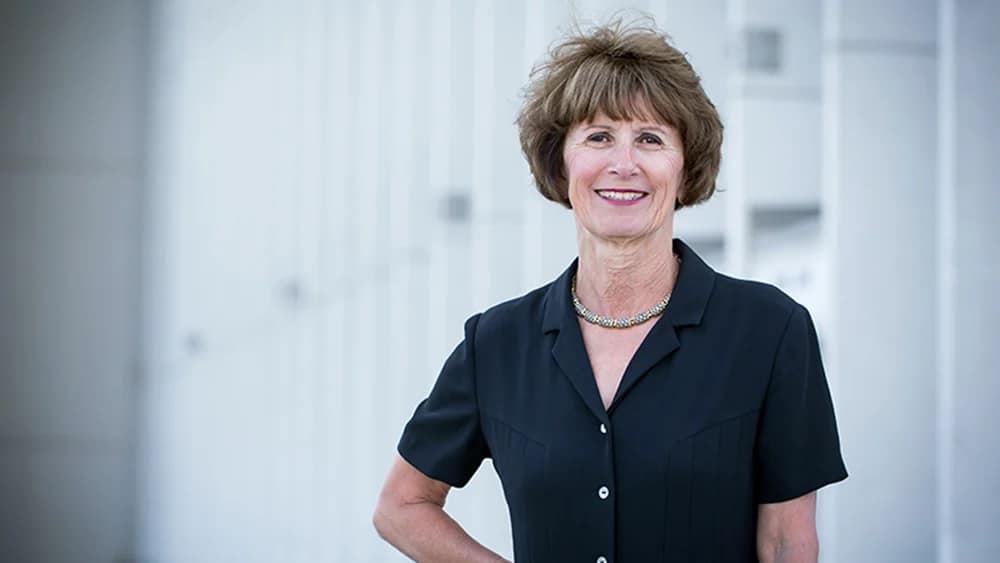
“When you do that, people will have a greater understanding of what you’re doing, why you’re doing it, and how you’re doing it,” said McChesney, one of a growing group of abuse experts and survivor advocates consulting with religious institutions.
As Sexual Assault Awareness Month comes to a close, there are a few steps these experts say every faith group can take to improve safeguarding protocols.
Accept it can happen anywhere
One of the most dangerous — and common — assumptions religious groups make is to think of sexual abuse as a “them” problem. As the founder of international nonprofit Freely in Hope, Nikole Lim has worked for years to combat sexual violence in Kenya and Zambia, and more recently has been helping U.S.-based groups prevent sexual abuse locally.
For Lim, the reality that 1 in 3 women y 1 in 6 men worldwide are survivors of sexual abuse is evidence this is a problem that permeates every level of society. “That’s a global statistic that doesn’t only exist in poor communities,” said Lim. “That also exists within your family, within your congregations.”

Experts agree that faith groups often embrace the myth that good intentions, theology, and ethics can stop sexual abuse from landing on their doorstep. But that’s not the case argue Amy Langenberg, a professor of religious studies at Eckerd College, along with her research partner Ann Gleig, a religious and cultural studies scholar at the University of Central Florida. The pair have shown that Buddhist ethics about doing no harm and showing compassion, for example, are insufficient to prevent abuse in Buddhist contexts.
Because faith communities often think of themselves as the “good guys,” they’re vulnerable to blind spots. That’s why conducting a risk assessment, much like you’d do for fire insurance, can help pinpoint what protocols are most needed, according to McChesney, who now leads a firm that consults on employee misconduct investigations and policy development. Once concrete anti-abuse measures are in place, ongoing education can remind people at all levels of the organization to remain vigilant.
Define abuse
Faith groups often struggle to respond effectively to sexual misconduct because they lack consensus on what “counts” as abusive.
In churches, Lim has found that loose definitions of abuse can lead to a form of “spiritual bypassing,” where abuse is framed as a mistake to be prayed about, rather than an act of harm that requires tangible accountability.
Conversations about sexual abuse in religious settings are often framed around clergy abuse of children. But faith groups must also account for peer-on-peer violence among children and teens, as well as abuse of adults. Key to preventing such abuse, Pooler said, is having a robust definition of sexual abuse that goes beyond mere legal metrics and includes things such as sexual conversations, nonconsensual touch and sexual jokes and language.
Recognize power dynamics
The unequal power dynamics inherent to religious settings are an enormous barrier to equitably addressing sexual abuse. But the law is beginning to account for this imbalance. In at least 13 states and the District of Columbia, it’s illegal for clergy to engage in sexual behavior with someone in their spiritual care — and many experts believe this standard, which is widely embraced when it comes to doctors and therapists, should be universal in religious settings, too.
According to Pooler, religious groups should work to share power among multiple leaders and ensure that the broader community has decision-making authority. And when sexual abuse allegations involve a religious leader, “the person should be placed on some type of leave where they are no longer influencing or speaking,” said Pooler, “because what I have seen is abusive people will try and grab ahold of the microphone and shape a narrative immediately.”
Center survivors
Experts commonly observe a default reaction in religious settings to to protect the reputation of the faith group or clergyperson over investigating an abuse allegation. But defensive postures often overlook the person who, at great risk, reported the abuse in the first place.
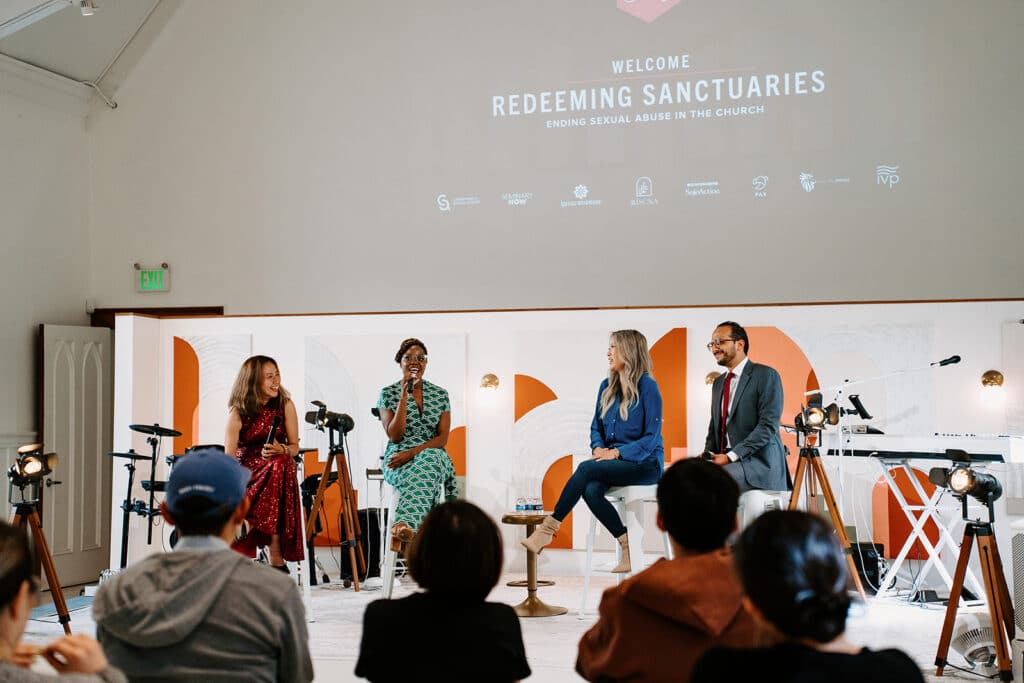
When a survivor shares abuse allegations, faith groups often fear what will happen if they take the report seriously. For example, Navila Rashid, director of training and survivor advocacy for Heart, a group that equips Muslims to nurture sexual health and confront sexual violence, said Muslim communities can be hesitant to address sexual violence because they don’t want to add to existing Islamophobic narratives about the violence of Islam.
But Rashid said it’s vital to believe survivors. “If we can’t start off from that premise, then doing and creating preventative tools and methods is not going to actually work,” she said.
Pooler advises groups to make sure survivors “sit at the steering wheel” of how the response is handled — if and when personal details about the survivor are shared, for example, should be entirely up to them. Caring for abuse survivors requires taking their needs seriously at every juncture, even before abuse is reported, according to Pooler and other experts. That’s why background checks are vital.
“You don’t want to put somebody that has abused a minor ever in a role of supervising minors,” said McChesney.
Get outside help
Faith communities are known for being close-knit, which makes avoiding conflicts of interest difficult, if not impossible, when it comes to holding offenders accountable. That’s why many experts recommend hiring outside groups to hold trainings, develop protocols and steer abuse investigations.
“They don’t have any investment in the church looking good or their leaders looking good,” Pooler said about hiring groups such as GRACE (Respuesta piadosa al abuso en el ambiente cristiano) or other third-party organizations that investigate abuse allegations. These organizations, he said, are committed to laying out the facts so faith groups can make informed decisions. Groups that are trauma-informed can also ensure that gathering testimony from survivors doesn’t cause additional harm.
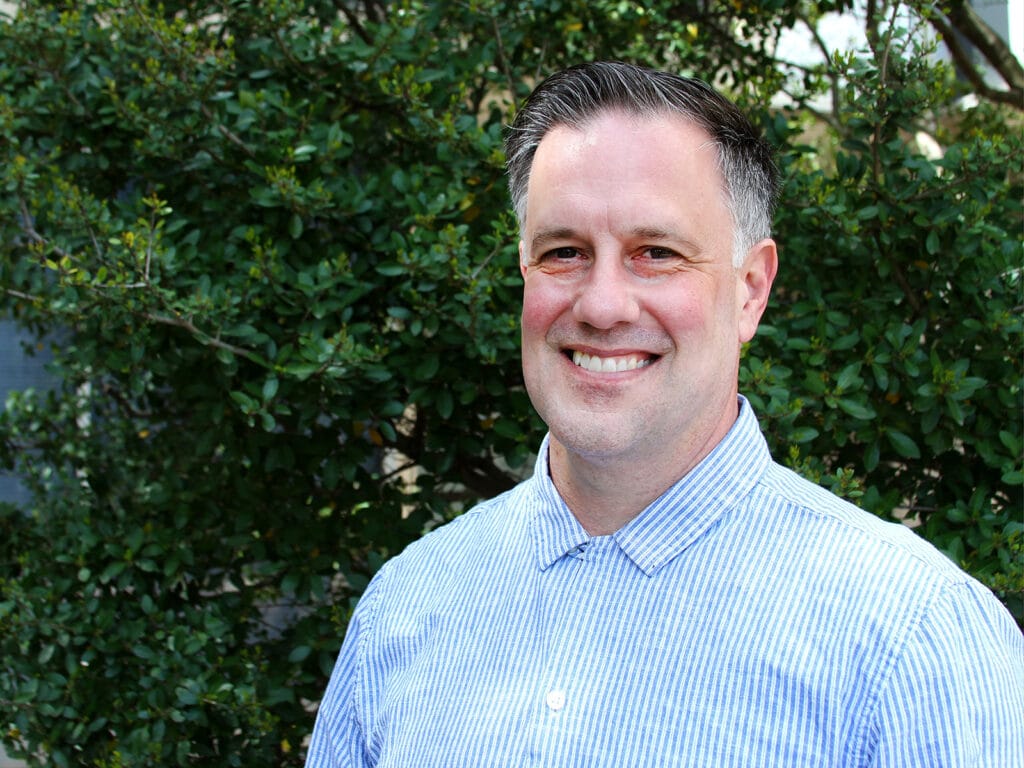
Rashid recommended that faith communities create a budget line for hiring outside groups who focus on addressing sexual abuse. Rather than offering quick fixes, she said, such groups are designed to help faith communities unlearn biases, recognize power dynamics and adopt long-term solutions at individual, communal and institutional levels that prioritize the safety of all community members.
“What we want to see with policies is pushing for a culture shift,” she said, “not a Band-Aid fix.”
 Kathryn Post is a reporter for Religion News Service based in Pittsburgh, Pennsylvania.
Kathryn Post is a reporter for Religion News Service based in Pittsburgh, Pennsylvania.





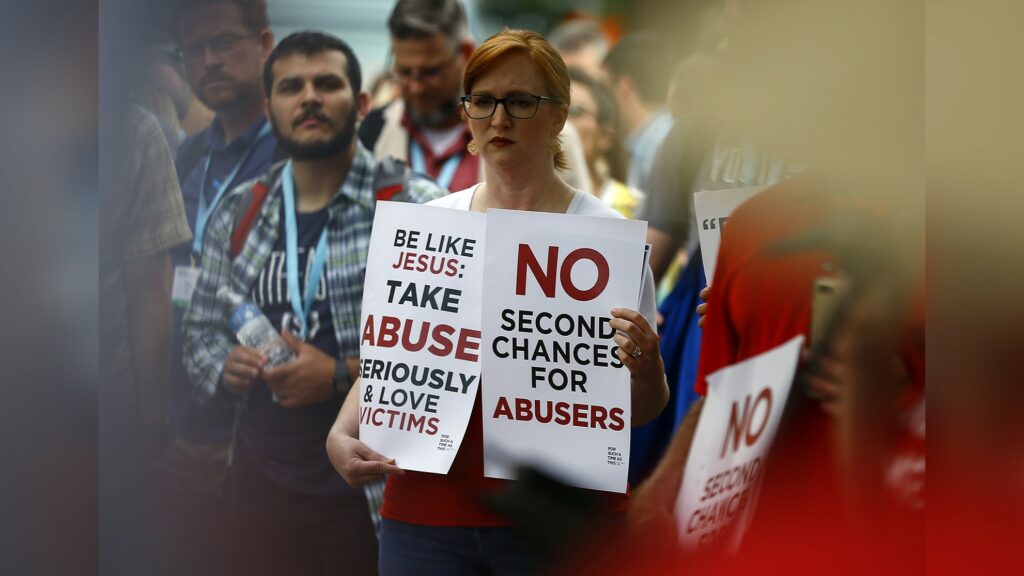
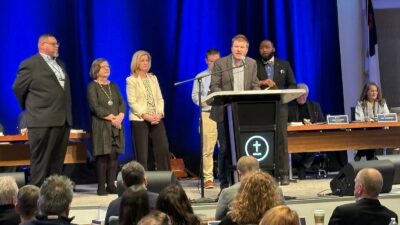
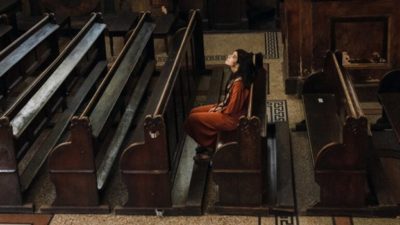
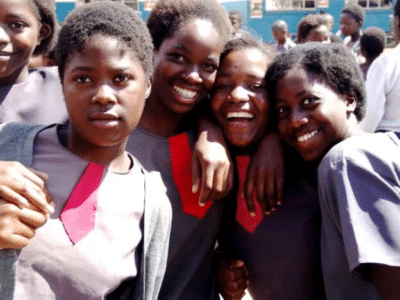
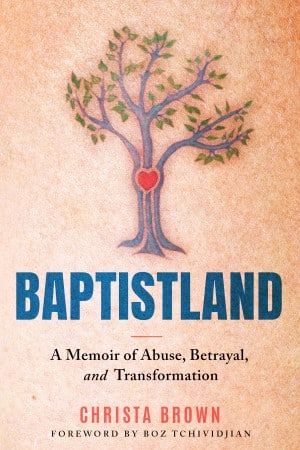
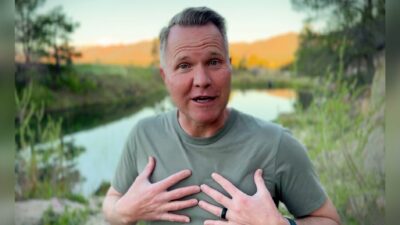
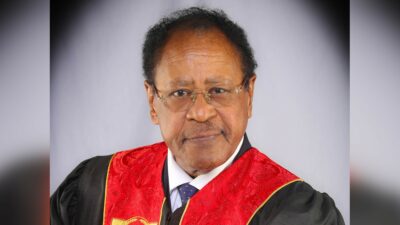

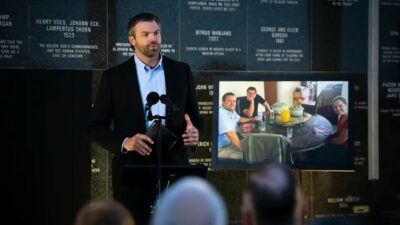






15 Respuestas
” … abusive people will try and grab ahold of the microphone and shape a narrative immediately.”
This is true whether the abuse is sexual or more general abuse of position and power.
When counseling a woman, always have someone (preferably your wife) with you. There’s no prevention method that works half as well as the zero opportunity option.
While the zero opportunity method may work, it is never the responsibility of the wife or anyone else to control the actions of the counselor.
Eric – your comment seems a little short sighted and focused on clergy and institutional protection. The church needs a cultural shift away from protection of clergy and institution and movement towards a culture where the focus and priority is safety of the entire community, and particularly the vulnerable people within it.
Spot on! It’s a good way to keep everyone safe.
At one time I was in a church whose pastor rarely counseled women. When he did, he had the wife of a deacon in the room just sitting off to the side. Another church I was in, the pastor’s door stayed open when counseling. The church secretary was right outside at her desk. The layout of the office allowed for privacy (people strolling in would not overhear the discussion) and accountability. Of course everyone involved maintained confidentiality. (That being said we could just follow the Bible for men to counsel men, women to counsel women.)
T person with the choke hold on the microphone is often in a position to influence/intimidate people in the group to not speak up. When the one with knowledge is other than the victim, silence can be seemingly the only choice because of the cost that will accrue to them if they say anything. Well, there is a cost whether something is said or not. The only difference between the two scenarios is who pays the cost. If nothing is said, that cost will accrue to the victim and potential future victims.
Go to the following link for a paper presented by Rachell and Jacob Denhollander at the 70th Annual Meeting of the Evangelical Theological Society in 2018 for insight into the difficulty in finding justice even if there is knowledge.
https://www.academia.edu/37779192/Justice_The_Foundation_for_a_Christian_approach_to_Abuse_ETS_2018_
Sadly, the problem often goes beyond the individual perpetrator and the victim to include an unresponsive elder board or other center of power or influence that keeps things under wraps. At the end of the day, this strategy is always about power.
Very good information. However, it stops short in the same place virtually everyone does when addressing this subject, which is Survivor Care. Having pastored the church I founded for 4 decades I got to see what Survivor Care can look like in a local church. Ministering strategically to survivors (the 1 in 3 and 1 in 6) is the most important protection against future abuse within the church.
Survivors are released of the shame that often keeps them from speaking up when they see something in the organization that is inappropriate. If something tragic does happen, they are there to inform the right steps.
I have been, and continue to be, a voice of one crying in the wilderness about Survivor Care in the local church. Sadly, most would rather focus on policies and procedures rather than actual Care for the wounded in our midst.
I think you are absolutely right Pastor Reeves. Can you write more about what Survivor Care looks like in your church?
The church as a whole needs a great deal of information about how churches can focus on caring for survivors.
I am aware that no two churches are alike, but still, there must be some principles that your church has used successfully that you could share?
Kathy,
Thanks for your reply. Go to Fearlessresources.org and you will find the resources I created for churches to begin this work, after decades of seeing it happen in my church.
One Series is for women and one for men. Note that Max Lucado participated in the Mens Series. Max is a survivor of childhood sexual abuse. Also Geremy Keeton, Director of Counseling for Focus on the Family participated.
Would love to help any way I can.
….you were out there early, Sir. Thank You!
You can find the resources I created at Fearlessresources.org.
There are resources for men and for women. If I can help let me know.
Bendiciones
Agreed but in the biginning catching and prosecuting the perp is just as important as the victim care. It’s a balance only the police can handle. No one and I mean no one in the church contacts the perp. There are things the Cop can do to collect evidence. I did it all the time in my cases as a Special Agent for the US Treasury. So whoever gets the complaint that person calls the Cops and stays out of it besides the victim’s parents if it is a child but again the COPS handle it. It’s not the SR PASTORS venue to do anything or be made aware of it. The COP DECIDES WHO AND WHEN any Pastors or elders know anything.
This day, may we, all of us, be more like one courageous, vulnerable, honest, selfless Michael Jacob McQueary.
For other insight on how to recognize when there may be issues or to recognize organizational characteristics that tend to produce bad outcomes, see “Something’s Not Right”, by Wade Mullen. While adult and male, being a victim himself, he knows what he’s talking about. His is not the only account out there. If interested in learning the permanent impact of these kinds of trauma on people, see “The Body Keeps The Score”, by Bessel Van Der Kolk, M.D. He is one of the original thinkers regarding the lasting physical/mental/emotional impacts on survivors of trauma. The victim has always been changed profoundly and permanently. For what can be done to care for victims, start with an internet search on “trauma informed care in churches”, or whatever organization you may be interested in. Maybe just start with “trauma informed care”. Also, most professionals in behavioral counseling or therapy must be cognizant of trauma informed care to remain current in their professions. While much is and can be done in churches, day care, public or private schools, scouting programs, summer camp, social clubs, sports programs, etc., part of the line of defense on these things will always rest with the person in the mirror. This issue has two sides. While trauma informed care is essential, more effective engagement up front would make much of that care unnecessary and perhaps prevent the experience that will remain with that victim regardless of the care they receive.